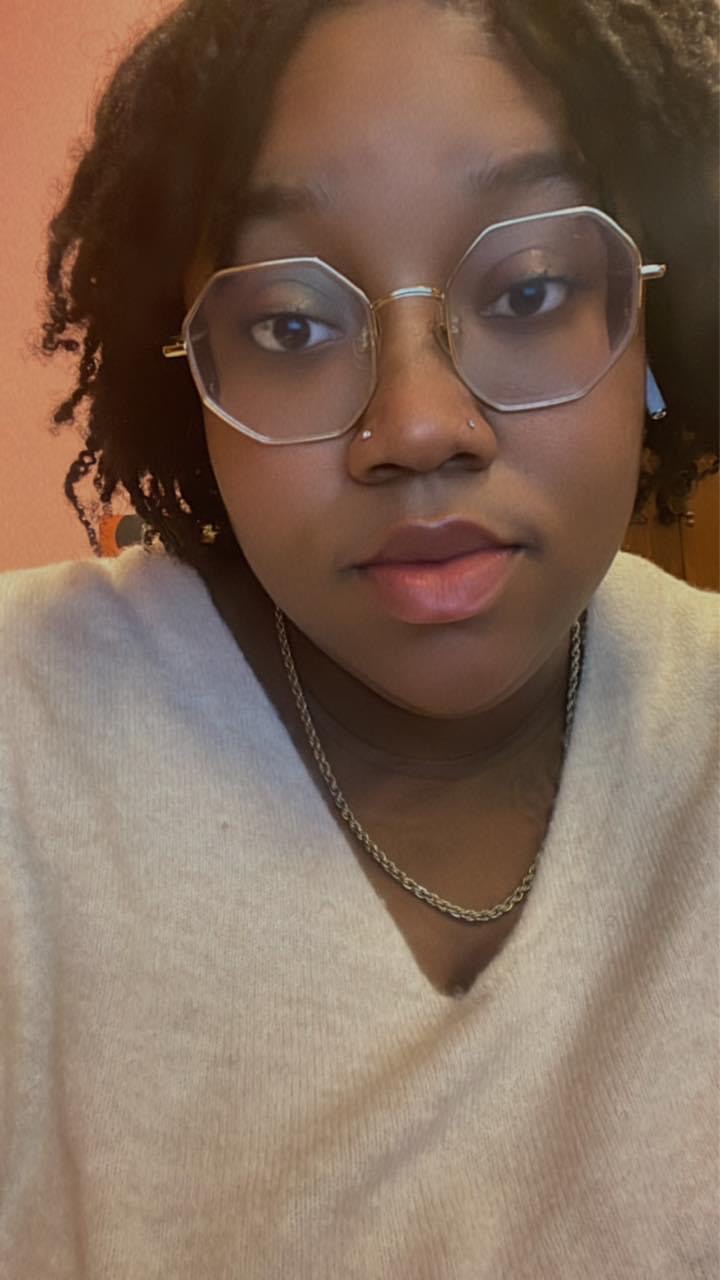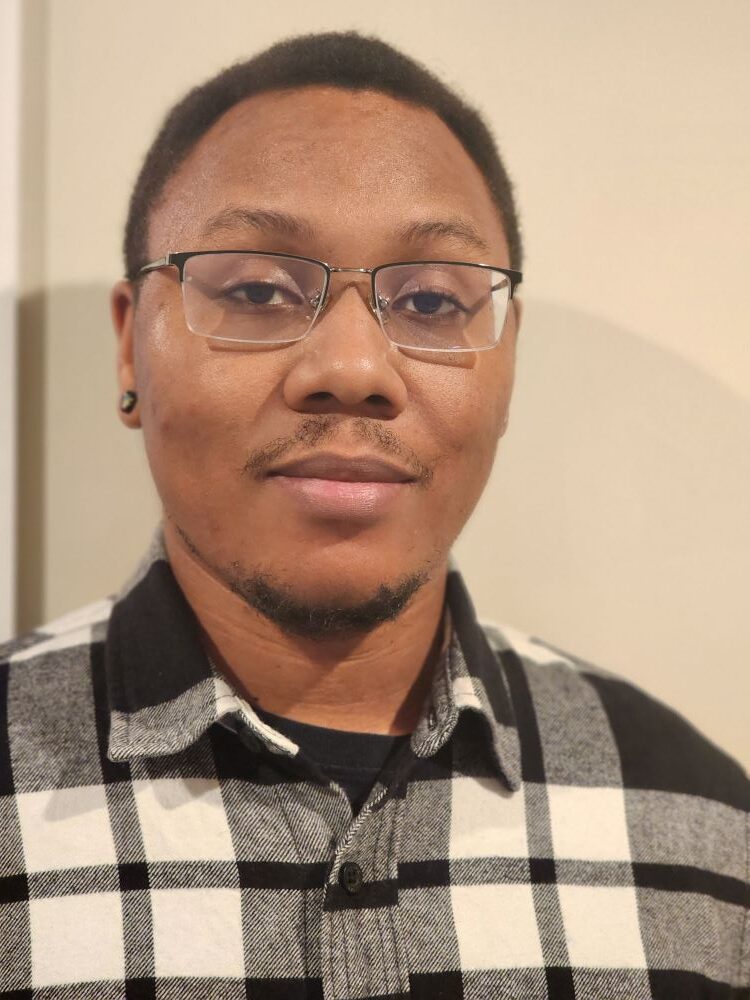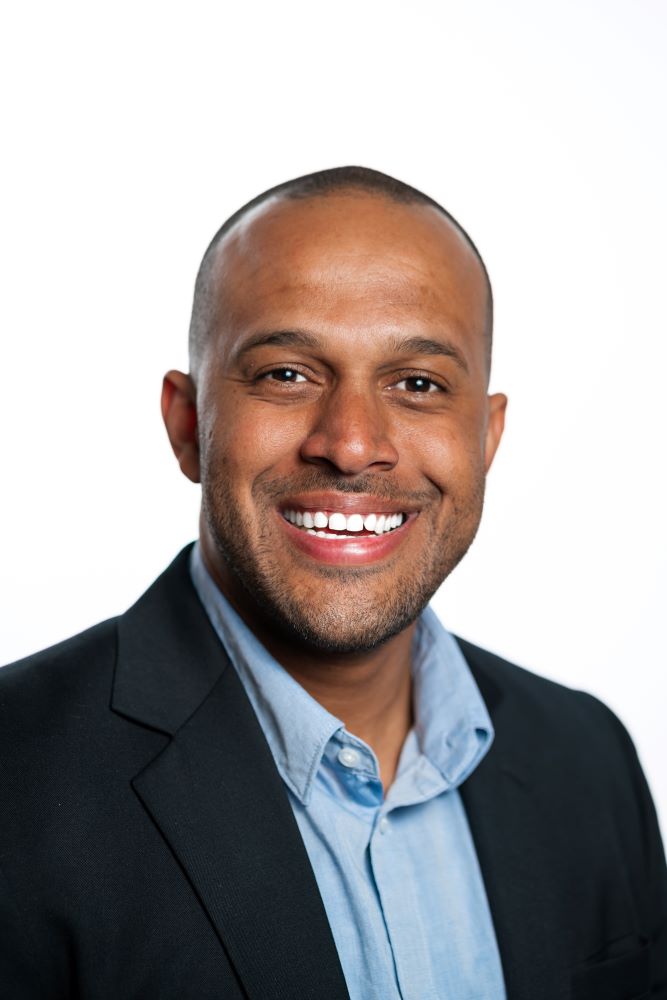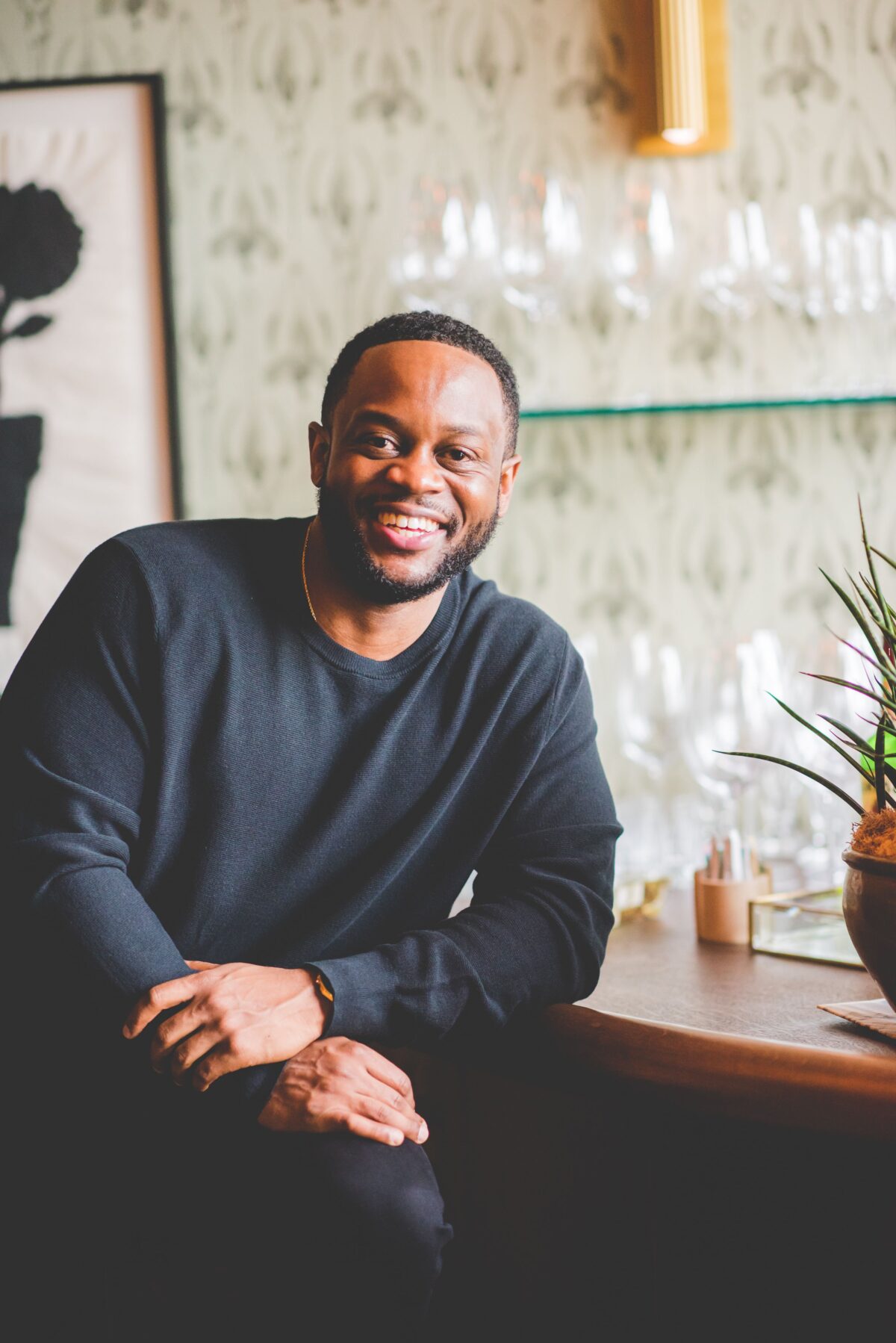Case in point: Tyler Wood never imagined herself working in public service the way she does now, as an office manager for Philadelphia City Council member Jamie Gauthier.
“I’d been in the IT world for over 12 years,” Wood said. “It was really familiar, but a part of me has always wanted to work in the community helping people. I was trying to put my foot into the door, but I didn’t know where to start.”
Wood, 29, grew up in West Philadelphia, attending Overbook High School before leaving the area for military service and returning to West Philly to work in IT. When her daughter was born, she took time off and decided it was a good time to upskill; she joined the West Philadelphia Skills Initiative program, which ultimately led to her City Council job and helped her maintain a middle-class life for her family.

“Thriving as a Black woman in Philadelphia, I feel like that means so much,” she said. “Especially as a Black woman who is a mother, we want to succeed so much for our children. They can see us and be like, ‘Mommy, I’m proud of you’ — like that will make my entire life to hear my kids say that to me.”
Being middle-class and Black in Philadelphia, by the numbers
There are around 107,000 Black middle-class households in the city of Philadelphia, per a Technical.ly analysis of recent Census figures. That’s less than half of the rightly 246,000 Black households in the city (or around 40% of the city’s approximately 650,000 households), but a marked increase over the 1970s and 1980s, when only about a quarter of Black households in Philadelphia were middle class; in 2010, it was 42%.
As is the case with other United States cities, Black Philadelphians were prevented from having access to wealth accumulation — particularly through discriminatory federal policies that allowed a practice called redlining, including in West Philadelphia.
Redlining became technically illegal in 1968 with the passage of the Fair Housing Act, but the practice has continued since then, making wealth accumulation an ongoing challenge even as the number of middle-class Black households increases.
What does it mean to thrive for middle-class Black residents in Philadelphia?
Technical.ly spoke with Wood and four other middle-class Black Philadelphians, ranging in age from around 30 to 60 years old, for this installment of Thriving. This yearlong reporting series highlights the lived experiences of people in Philadelphia, Baltimore, Milwaukee and other comparative cities to understand the opportunities and obstacles along their journeys to economic security and freedom. For this story’s purposes, “middle class” means earning between approximately $50,000 and $99,000 per year.
The five people featured in this installment are thriving in industries including technology, healthcare, hospitality and public service. Most are in the middle of their journeys and look forward to growing their careers and their work with the community.
Matthew Heartsfield: ‘College isn’t really working’
When Matthew Heartsfield graduated as valedictorian from Murrell Dobbins CTE High School, everyone assumed he was on the college track.
Heartsfield, 31, was born and raised in Philadelphia, growing up in North Philly and eventually settling in Southwest Philly. After high school, he attended Temple University as a computer science major but didn’t finish the degree once he began to see other people around his age getting good jobs without the long and expensive commitment.
“I was like, ‘Yeah, college isn’t really working,’” he said.

His younger brother and a friend both went through Tech Impact’s IT Works, a free, 12-week intensive IT training program. Combining what he learned at Temple with IT Works, he entered the corporate world and worked with different law firms over the years. He’s currently a systems analyst for the international law firm Dechert LLP’s document management system.
Heartsfield didn’t set out to go into legal IT, but it’s been rich for networking as he advances his career.
“I’ve definitely learned a lot from it,” he said. “I’ve made a lot of connections with a lot of big partners with different law firms throughout Philadelphia where they at least know me by name. It’s like, ‘I know you’re the one that’s going to help me get what I need to get done’. So it’s been nice to bump elbows with a lot of these people and learn how corporate legal works.”
Still, the goal is to move beyond IT and higher on the corporate ladder: “I eventually want to get over to do software engineering and DevOps work. I want to be a person that actually starts to build stuff.”
Heartsfield’s strategy of working his way up from supporting positions is intentional. He expects it will make him a better builder, once he gets to that point.
“With a lot of people I’ve seen, it’s like, you get to be an engineer because you went to school, but you don’t know how to deal with a user,” he said. “So you’re going to design something for somebody, but you don’t know how they’re going to use it or what they need to do. You’re thinking of it [in terms of] math and science. You can’t think of it from math and science. You have to think about the user experience.”
Heartsfield credits IT Works for putting him on this track, and he returns to speak with its cohorts whenever he can.
“I try to make it a point to go back for a panel or talk to the new students,” he said. “I’ve been involved every year since I graduated in some way, shape or form because it’s exactly what I wanted and what I needed. This is what I thought going to school was going to be.”
“I tell everybody:, ‘If you’re trying to make that transition, if you’ve tried school, you’ve tried traditional education and it doesn’t click, this is something you want to look at and this is something you want to try,'” he added.
To him, thriving as a middle-class Black Philadelphian means “proving that I can get to where I want to be.”
“It’s not going to be an easy path,” he said. “When I was in high school, I knew what I wanted to do. I knew the direction that I wanted to go with. I knew I eventually wanted to get to a position where I would be self-sufficient and take care of myself. And eventually, the longer goal is going to be to own something — not just a house, but I want to start some kind of business in it because I have the foundational building blocks.”
“When I first started this journey, I didn’t know how it was going to work,” he added. “I had the same idea that most people had — I’m just gonna go to college, college is gonna help me figure it out. It’d be easy. … For me, as long as you’re happy with where you are, you can be self-sustaining for what you need to do and what you want to do.”
Vanessa Dicks: ‘I can get off disability and be able to work a job in a field where I can grow’
In 1996, Vanessa Dicks graduated from Maccarrie Technical School with an associate’s degree as a laboratory technician and her 1-year-old son in tow.
The excitement was short-lived: Dicks wasn’t able to find a job in laboratory science after graduation. She’d done an internship but was told she had no experience.
“That caused me to pivot,” she said. “I went to a temp agency and got into Blue Cross and Blue Shield and went into the insurance area. I am a single mother and I need to do what I need to do.”

Fast forward to 2020, when COVID-19 hit. By this time, Dicks had been on disability for lupus after a decade in insurance. As a youth pastor at her church, she would help congregants look for work and connect them with resources in the community. She often received emails from West Philadelphia Skills Initiative — the same program Wood attended — and frequently referred it to people. One such email eventually made sense for a different candidate: herself.
“Well, this particular time I get the message and it says it’s for a laboratory assistant,” she said. “We’re all stuck in the house by this time. I have been on disability for some years now. And when I saw this I’m like, ‘Oh my gosh, maybe this is my chance. Maybe instead of referring someone else, I will do it myself.’ So I put in the application and lo and behold, I was chosen.”
Since the pandemic had shifted everything online, Dicks was able to do the program from home. She felt like she was “winning the lottery” to receive a new, paid opportunity during a time when so many Americans were getting laid off — and because that opportunity was so aligned with the career she’d previously imagined for herself, even after years away from a typical 9-to-5 workflow.
“I said, ‘I’m going to take this chance,’ and it just kind of reignited inside, that hope [behind] those dreams that I had all the way back in 1996. And I was like, if I can get a foot in the door, then I know I can go the rest of the way.”
Dicks worked in a COVID lab for a year before being promoted to a technician in the blood bank where she currently works.
“I love it. I’ve been there now for 14 months,” said Dicks, now 48. “I confirm blood when it comes from the Red Cross to make sure the old positive is actually in the old positive bag. I prepare transfusions for babies when they need them. I do inventory. It’s just really, really exciting. … I can get off a disability and be able to work a job in a field where I can grow.”
“Thriving workers, like myself and so many other single moms, are just sitting in the wings waiting for a chance.”Vanessa Dicks
For Dicks, thriving means more than financial stability.
“Thriving means that your hope is ignited, your heart is ignited, you’re the full person,” she said. “It’s being alive, and you’re moving to a goal. If you’re fighting depression, thriving means you get out of bed and get in the shower. You know what I’m saying? So I just appreciate this thriving that was reignited inside of me from the West Philadelphia Skills Initiative. Because in ’96, that died.”
If she could send a message to companies that are hiring, it would be this:
“Holistically look at the person. [Does a] four-year degree define what a person can do? Of course, in some jobs, you’d have to be classically trained, but there are so many jobs and genres of jobs that can be done by just training a person and giving a person that chance. And I think that a lot of companies miss the mark and miss out on some great talent because they’re unwilling to bend. It’s really sad, because thriving workers, like myself and so many other single moms, are just sitting in the wings waiting for a chance.”
Anis Taylor: ‘I always ended up back in Philly’
Born to a military family and raised in Guam, Anis Taylor, 40, first came to Philadelphia in 2000 as a high school basketball player attending the Philadelphia Christian Academy.
From there, Taylor landed a full basketball scholarship at the HBCU Bethune-Cookman University in Daytona Beach, Florida.
“It was an honor to go to that school and get a scholarship to play a game that I love,” he said. “I had a really great experience there and graduated. When I graduated it paid dividends, it gave me the confidence to know that I can be an entrepreneur and whatever I have in mind, I can build it and make it work. I owe a lot to that education that I got at Bethune-Cookman. … But no matter where I go, I’m always back in Philly.”
Taylor, who lives in Holmesburg, did go on to be an entrepreneur. He launched his latest startup, SnapRefund, in 2019 with cofounder Cody Eddings.
“We see that there’s a huge opportunity with people in underbanked and underrepresented communities, who really need their money when they need it, to be able to get their money instantly,” said Taylor, who also worked as a digital media teacher at Dobbins High School from 2020 to 2022. He and Eddings met through Philadelphia business ecosystem events, in which they saw a major blind spot.

“We realized that in our journey of entrepreneurship, there was little that we were taught about financial literacy,” he said. “And so, being entrepreneurs, being in a tech space, we decided [on], instead of talking about it, doing something about it.”
Like many startups, SnapRefund relied on resources for startup founders to get the business established. While the founders participated in several startup accelerators, the ones that really kicked it off, Taylor said, were Philly Startup Leaders’ accelerator and the Ballard Academy for Student Entrepreneurs, or BASE.
“That had led us to continue on our growth, and that led us to receive our first initial investment from an accelerator known as gener8tor, based in Wisconsin,” Taylor said. “It was a great opportunity for us to build this business in Philadelphia, but also be able to take our business and spread it throughout the country, which is really what we’re looking to do.”
“There are not many cities in the world that are as gritty as Philadelphia. It’s how it is, people get their hands dirty, and do it with class and do it with respect.”Anis Taylor
What does thriving mean for these middle-class Black tech founders?
“Thriving means being able to get through all the barriers and challenges that are thrown your way and being able to overcome it,” Taylor said. “I’ve been in a lot of places around the world and there are not many cities in the world that are as gritty as Philadelphia. It’s how it is, people get their hands dirty, and do it with class and do it with respect.”
“There might not be many people that look like me that I can lean on in this space,” Taylor added. “But thriving is knowing that as a community, you’re going to have a support system, and you’re going to be able to do what you have to do to overcome those challenges. And being able to do it out of Philly makes it that much better.”
Kamal Marell: ‘I didn’t want to be in the classroom’
The coffee shop that Kamal Marell, 36, runs in Brewerytown serves a lot more than coffee.
Marell is executive director of The Monkey & The Elephant, a nonprofit supporting young adults between the ages of 18 and 24 who have aged out of foster care by providing workforce development skills (including as employees in the coffee shop), an employment training program and other soft skills and financial literacy tools.
“I’ve worked in social services for a little over a decade now,” including public education, he said. “I didn’t want to be in the classroom, so I chose to use my skills in other spaces but still have a foot in education and social services.”
Marell, who also DJs as a creative outlet, grew up in Mount Airy and went to Clemson University on a track scholarship before earning an urban education master’s degree from Temple. He lives now with his fiancee in Brewerytown, where The Monkey & The Elephant opened a location in 2015 after starting as a pop-up shop. Marell came in as executive director in October 2022.
“I think it’s unique that we’re mission-based and mission-driven,” he said. “It adds somewhat of an element of being important to the community beyond just the purchase of coffee. While we do make sure that the young adults that we work with are trained as baristas and as leaders on the floor in the coffee shop, we also want to make sure that what we provide to the community is just as good.”

Working with young people who may lack traditional support systems as they transition into adulthood gives Marell a broad view of “thriving.”
“For the young adults that I work with, I think in order for them to thrive there’s a level of independence that is taking place,” he said. “When we look at the extended period from 18 to 26, where people are still developing and still figuring out exactly what their purpose is, having time to develop an understanding of yourself and where you fit in the world is important. Once you’re able to do that, you’re able to thrive at that age, where society usually thinks that you’re just supposed to know everything and be able to be on your own.”
Marell is coming up on his own turning point, too.
“Thriving, for me, also is becoming a family man,” he said. “What does that look like for me as a father in Philadelphia? What does the landscape of the city look like from a safety standpoint, from a growth standpoint, from an educational standpoint? All those things are starting to be more and more relevant to me as I’m starting to think about raising a family in the city.”
Marell is also looking into getting his real estate license — a move that he says will help him provide not only for his family but also for the young adults he works with, as increasing real estate access to communities traditionally shut out of owning property is a path to creating generational wealth.
“From a community standpoint, I’m able to create avenues of education and wealth for marginalized communities,” he said. “In Philadelphia, it’s 40% Black. That number [does not] always equal the amount of ownership in the city. Think about what that looks like if I’m able to have some sort of level of privilege. … That can be done through real estate because that’s one of the quickest ways for us to grow generational wealth.”
Tyler Wood: ‘I did everything different’
To get to where she is now, Wood had to learn to care for herself as well as her children. Like many Black women in the US, she found herself struggling with mental health issues. While it’s common for women of color to deal with issues like depression and anxiety on their own, Wood turned to therapy, which helped — but it was only part of what she needed.
“I was like, ‘I feel like I’m tricking myself into thinking that I’m OK, but I’m not really OK,'” she said. She reached out to her primary care doctor, who prescribed her medication. It worked, for a while. Then it didn’t. She decided to make a change — several changes, actually.
“I did therapy, medication and change in my environment all at once,” she said. “I moved. I got a new job. I did everything different.”
Those changes led her to her current state of mind: being happy with her job and not rushing to change.
“Now that I’m here, instead of moving forward, I’m ready to expand,” she said. “That’s definitely where I feel like I am right now.”

